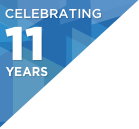Conference: Nov 5-7, 2018
Workshops: Nov 8–9, 2018
Presentation: Grokking Leadership Via Mentoring
Share this on:
What You’ll Learn
- Discover ways to determine if leadership is the path for you
- Learn how mentorship can be a bridge from practitioner to leader and manager
- Hear about techniques that connect you with your direct reports—not just as engineers— but people
Abstract
Management and leadership are not about doing great work ourselves, but empowering others to do the same. The best leaders understand what makes their charges tick, not just as engineers, but as people. But how do we know we're ready to take that next step, and be successful in leading and inspiring others?
Mentorship is not trivial: it provides a bridge between being a practitioner and being a leader. This talk will define these nuances of leadership, and how to decide whether or not to cross that bridge. We'll outline what good mentorship is and why it's important, with the goal of scaling it into management as a leader who helps others navigate an increasingly complex tech landscape.
Interview
I’m a Senior UX/UI Designer at Customer.io and our mission is to help businesses talk like people. We help businesses segment their customers based on user activity in their app, and communicate meaningfully with them based on that. We gather a great deal of usage and engagement data from those end-users and funnel it into Customer.io. We then enable businesses to build campaigns with emails, SMS, push and more.
The focus of my work is building an app which makes that campaign-building easy. It can be really complex, because you're trying to take tons of data and make it personal. We need to abstract the data in such a way that a campaign can be set up for hundreds of thousands of people, but at the same time make sure that the individual messages are tailored to the end-user. It’s about building a UX that enables people to leverage all this date, and be confident that messages are going to the right people, at the right times, and doing the right things.
To share with people that leadership and mentorship have all sorts of nuances, and that it's as much about the leader as it is the people who are being led. It’s a sort of symbiosis. Leadership is understanding others’ needs, but it’s also about self-reflection, and understanding how we engage with others. Describing those nuances might make it seem complicated at first, but then I'm going to break that complexity down into something that's manageable and give the audience actionable takeaways.
My talk is for people in tech who are either trying to decide whether or not leadership or management is for them, but also those who are already managing and are looking to become better leaders or managers.
I think what makes a good leader is someone who is always engaging in self-reflection, assessing their own leadership style as much as they look externally. They assess what they need from their direct reports, but also what those reports need from them— not necessarily just as practitioners, but as people. They concentrate on that cyclical relationship rather than just moving someone forward in a career, operationally. It's a bigger, more holistic look at their leadership— as a relationship with people rather than just an operational advisor.
That mentorship is the gateway into leadership— its unit test. I believe when you start with mentoring others, it helps you lay the foundations for being a good leader. Then, you lead teams with the skills you gain from mentoring and investing in individuals. I'll outline a couple of approaches to understanding people using my psychology and neuroscience foundations, for example what people need on a more basic "enable them to do great work" kind of level. Then, you can use your individual technical skill to help them level up.
I’ll share some techniques and tools to help understand both what they need and what their direct reports need, and how enabling individuals makes for better software— solving people problems to solve technical problems. I’ll also describe how to define what happens if you don’t want to be a manager, and what organisations should do to support those people.
Something that that scares me is putting the real you on everything these days, and tying your identity to all of your online practices. Back in the days when the Internet was first getting started, you could be anyone you wanted to be online. You could explore yourself. Of course this is a double edged sword, because it allows us to be pretty terrible to each other, too. But in a lot of ways, this environment allowed a lot of people (particularly marginalized folks) to explore their identities in an environment in that gave freedom, when that freedom wasn’t available in day-to-day life.
Now things are becoming more personal - you can unlock your iPhone with your face! - and you must put your real name into everything before you might be ready to. But maybe you're not in an environment where you're enabled to explore who you are freely— you’re not ready to put your face on something, so you don’t, and a part of your identity goes unexplored, because you’re afraid. It prevents people from being themselves, and that can negatively impact people. That trend is something that scares me a little bit. It stifles us, and can make us feel less safe.
Similar Talks



.
Tracks
-
Architectures You've Always Wondered About
Architectural practices from the world's most well-known properties, featuring startups, massive scale, evolving architectures, and software tools used by nearly all of us.
-
Going Serverless
Learn about the state of Serverless & how to successfully leverage it! Lessons learned in the track hit on security, scalability, IoT, and offer warnings to watch out for.
-
Microservices: Patterns and Practices
Stories of success and failure building modern Microservices, including event sourcing, reactive, decomposition, & more.
-
DevOps: You Build It, You Run It
Pushing DevOps beyond adoption into cultural change. Hear about designing resilience, managing alerting, CI/CD lessons, & security. Features lessons from open source, Linkedin, Netflix, Financial Times, & more.
-
The Art of Chaos Engineering
Failure is going to happen - Are you ready? Chaos engineering is an emerging discipline - What is the state of the art?
-
The Whole Engineer
Success as an engineer is more than writing code. Hear inward looking thoughts on inclusion, attitude, leadership, remote working, and not becoming the brilliant jerk.
-
Evolving Java
Java continues to evolve & change. Track covers Spring 5, async, Kotlin, serverless, the 6-month cadence plans, & AI/ML use cases.
-
Security: Attacking and Defending
Offense and defensive security evolution that application developers should know about including SGX Enclaves, effects of AI, software exploitation techniques, & crowd defense
-
The Practice & Frontiers of AI
Learn about machine learning in practice and on the horizon. Learn about ML at Quora, Uber's Michelangelo, ML workflow with Netflix Meson and topics on Bots, Conversational interfaces, automation, and deployment practices in the space.
-
21st Century Languages
Compile to Native, Microservices, Machine learning... tailor-made languages solving modern challenges, featuring use cases around Go, Rust, C#, and Elm.
-
Modern CS in the Real World
Applied trends in Computer Science that are likely to affect Software Engineers today. Topics include category theory, crypto, CRDT's, logic-based automated reasoning, and more.
-
Stream Processing In The Modern Age
Compelling applications of stream processing using Flink, Beam, Spark, Strymon & recent advances in the field, including Custom Windowing, Stateful Streaming, SQL over Streams.
-
Performance Mythbusting
Real world, applied performance proofs across stacks. Hear performance consideratiosn for .NET, Python, & Java. Learn performance use cases with OpenJ9, Instagram, and Netflix.
-
Tools and Culture: What's Beyond a Stack of Containers?
Containers are not just a techology. It's a platform. Push your knowledge.
-
Web as Platform
All things Browser, from JavaScript Frameworks for animation and AR / VR to Web Assembly and from protocol work to open standards evolution.
-
Beyond Being an Individual Contributor
Beyond being an individual contributor. Building and Evolving managers and tech leadership.
-
Building Great Engineering Cultures
Why engineering culture matters. Track features org scaling, memes as a culture tool, Ally skills, and panels on diversity / inclusion.
-
Hardware Frontiers: Changes Affecting Software Developers Today
Topics around: Quantum computing, NVM, SMR, GPU, custom hardware, self-driving cars, and mobile hardware.










